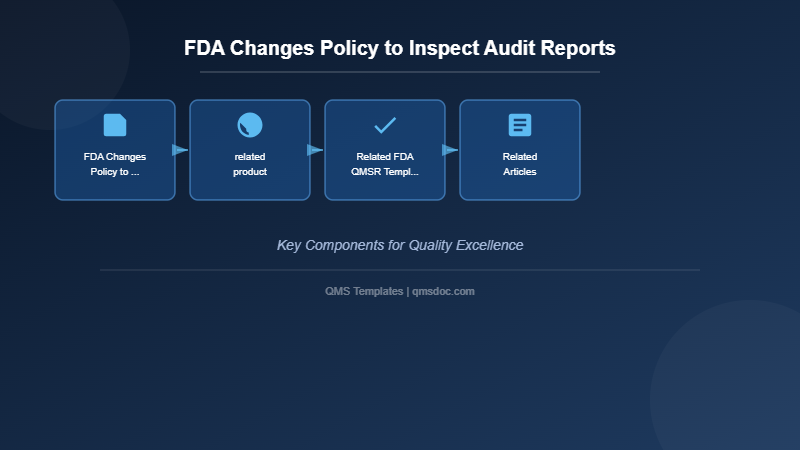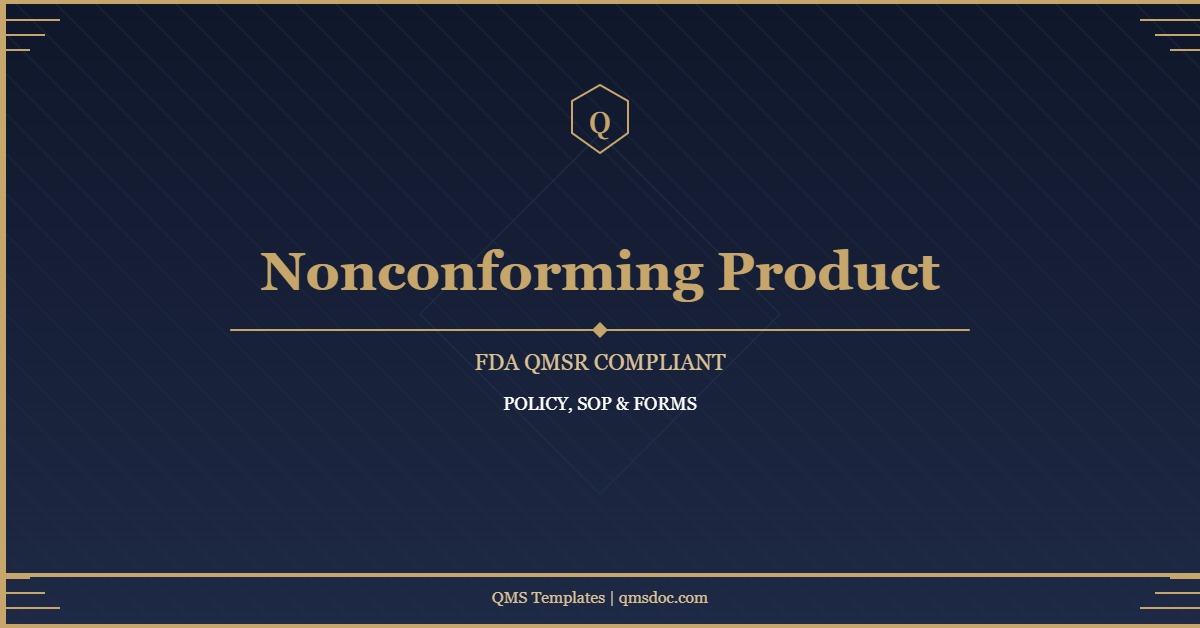…
FDA Changes Policy to Inspect Audit Reports.

On January 31, 2024, the FDA published a final rule called the Quality Management System Regulations (21CFR Part 820: Quality Management System Regulations / QMSR).
The QMSR will align the current Quality System Regulations (QSR) with ISO 13485:2016.
The effective date was set for two years later, until February 2, 2026.
Presumably, the Quality Inspection Technique (QSIT), an inspection manual, is currently being revised.
In current QSR 820.180(c) and QSIT,
- Management Review Minutes
- Quality Audit Report
- Supplier Audit Report
and the like are exceptions and do not have to be presented at the time of inspection.
In the QMSR, however, the above is no longer the exception.
820.180 General requirements
(a) maintenance of confidentiality
(b) Period of record keeping
(c) Exception
This section does not apply to the following reports
§820.20 (c)Management Review.”
§820.22Reports required for “quality audits”
§820.50(a)Supplier audit reports used to fulfill the requirements of the “Supplier, Contractor, and Consultant Evaluation” section.
However, it does apply to procedures established under these articles.
At the request of the prescribed FDA official, management with enforcement responsibility shall certify in writing that the management reviews and quality audits required by this part and, if appropriate, supplier audits, have been conducted and documented, the dates they were conducted, and that the required corrective actions have been taken.
In the QMSR, exception (c) above was deleted.
The reason is stated in the response to public comment below.
To summarize,
- To achieve international harmonization
- To be equal with MDSAP participating companies
- In the past, management review and audit findings have been viewable through the substantive CAPA
(Comment55)FDA received numerous comments regarding the lack of exceptions for management reviews, quality audits, and supplier audit reports that previously existed in QS Rule 820.180(c). Most of such comments requested that FDA maintain the exception set forth in § 820.180(c), some suggested that FDA adopt such specific language, and the remainder requested that FDA clarify whether such records are exempt from inspector access The others requested that the FDA clarify whether such records are exempt from inspectors’ access. In particular, one commenter noted that the current Quality System Inspection Techniques (QSIT) Guide also states that management review, internal audit, and supplier audit records are exempt from inspection. Several commenters expressed concern that this exception is necessary to ensure that manufacturer audit and management review reports continue to be complete and/or useful.
(Answer) FDA does not agree with maintaining the exception set forth in § 820.180(c). One of the primary goals of this rulemaking effort is to move as close as possible to global harmonization and coordination. From a global perspective, the exceptions referenced in the comments are not available to manufacturers that are inspected by other regulators or audited by other entities (e.g., MDSAP audit organizations), so making these records available to such manufacturers would not impose additional not impose any additional burdens on them. Similarly, FDA believes that making these records available would not impose a significant burden on manufacturers who may have taken advantage of the exception, since such records are maintained in the normal course of business and should be readily available. In addition, FDA investigators already have access to data used to inform management reviews, such as nonconformances, complaints, and corrective actions as a result of internal and supplier audits.FDA believes that a robust management review, internal audit and supplier audit program are fundamental to the culture of quality described earlier in this rulemaking and that FDA expects firms to have. Further, FDA intends to modify the inspection process consistent with this rulemaking and does not believe that this rulemaking is an appropriate vehicle to describe future enforcement activities, including the inspection process.
related product
[blogcard url=https://ecompliance.jp/qms-md/ title=”QMS(手順書)ひな形 医療機器関連” ] [blogcard url= https://ecompliance.co.jp/SHOP/O094.html title=”【VOD】QMSRセミナー (Quality Management System Regulation)”] [blogcard url= https://ecompliance.co.jp/SHOP/EL-135.html title=”【セミナービデオ】QSRからQMSRへセミナー”] [blogcard url= https://ecompliance.co.jp/SHOP/O093.html title=”【VOD】CSA(Computer Software Assurance)セミナー”] [blogcard url= https://ecompliance.co.jp/SHOP/EL-082.html title=”【セミナービデオ】日本一わかりやすい超入門改正QMS省令セミナー”]Related FDA QMSR Templates
Streamline your FDA QMSR compliance with our professionally crafted templates:
Related Articles
- FDA’s Policy Shift: Management Review and Audit Reports Now Subject to Inspection
- The Critical Importance of Self-Inspection (Internal Audit) in the Pharmaceutical Industry
- Differences Between Internal Audits and Self-Inspection
- Purpose and Proper Development of Validation Reports
- Understanding Quality Control (QC) in Pharmaceutical Manufacturing: Beyond Inspection to Process Excellence
- The Commencement of ER/ES Inspections by Regulatory Authorities: Historical Context and Current Practices



Comment